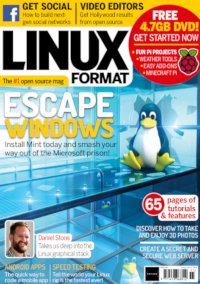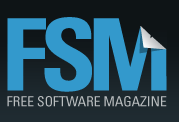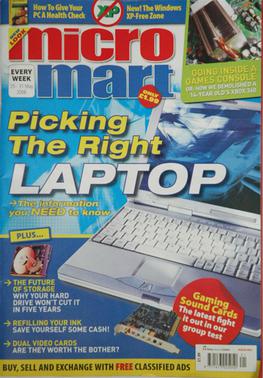Related Research Articles

Free software or libre software is computer software distributed under terms that allow users to run the software for any purpose as well as to study, change, and distribute it and any adapted versions. Free software is a matter of liberty, not price; all users are legally free to do what they want with their copies of a free software regardless of how much is paid to obtain the program. Computer programs are deemed "free" if they give end-users ultimate control over the software and, subsequently, over their devices.

A Linux distribution is an operating system made from a software collection that includes the Linux kernel, and often a package management system. Linux users usually obtain their operating system by downloading one of the Linux distributions, which are available for a wide variety of systems ranging from embedded devices and personal computers to powerful supercomputers.

Linux Journal (LJ) is an American monthly technology magazine originally published by Specialized System Consultants, Inc. (SSC) in Seattle, Washington since 1994. In December 2006 the publisher changed to Belltown Media, Inc. in Houston, Texas. Since 2017, the publisher was Linux Journal, LLC. located in Denver, Colorado. The magazine focused specifically on Linux, allowing the content to be a highly specialized source of information for open source enthusiasts. The magazine was published from March 1994 to August 2019, over 25 years, before being bought by Slashdot Media in 2020.

Damn Small Linux (DSL) is a discontinued computer operating system for the x86 family of personal computers. It is free and open-source software under the terms of the GNU GPL and other free and open source licenses. It was designed to run graphical user interface applications on older PC hardware, for example, machines with 486 and early Pentium microprocessors and very little random-access memory (RAM). DSL is a Live CD with a size of 50 megabytes (MB). What originally began as an experiment to see how much software could fit in 50 MB eventually became a full Linux distribution. It can be installed on storage media with small capacities, like bootable business cards, USB flash drives, various memory cards, and Zip drives.

Free and Open source Software Developers' European Meeting (FOSDEM) is a non-commercial, volunteer-organized European event centered on free and open-source software development. It is aimed at developers and anyone interested in the free and open-source software movement. It aims to enable developers to meet and to promote the awareness and use of free and open-source software.

PC PowerPlay (PCPP) is Australia's only dedicated PC games magazine. PC PowerPlay focuses on news and reviews for upcoming and newly released games on the Microsoft Windows platform. The magazine also reviews computer hardware for use on gaming computers. The magazine is published by Future Australia.

Linux Format is the UK's first Linux-specific magazine, and as of 2013 was the best-selling Linux title in the UK. It is also exported to many countries worldwide. It is published by Future plc. Linux Format is commonly abbreviated to LXF, and issues are referred to with LXF as a prefix followed by the issue number.

Free Software Magazine is a Web site that produces a mostly free-content online magazine about free software.
Linux adoption is the adoption of Linux computer operating systems (OS) by households, nonprofit organizations, businesses, and governments.

Micro Mart was a weekly computer magazine published in the United Kingdom by Dennis Publishing Ltd. As of 2015, it had a circulation of 5,422. In a letter to subscribers in December 2016 it was announced that the magazine would cease publication with issue No 1445 : "After 30 amazing years of telling it like it is, Micro Mart magazine is logging off."
PC Chip is a monthly Croatian computer magazine. It is one of three general computer magazines published in Croatia, along with its main competitors BUG and Vidi. The magazine is published by company A1 video d.o.o., which is also maintaining website pcchip.hr. The magazine has its headquarters in Zagreb and is also sold in Bosnia and Herzegovina, Slovenia, Serbia, but "digital sample" (pdf) is available to anybody with internet connection.

Foxit PDF Reader is a multilingual freemium PDF tool that can create, view, edit, digitally sign, and print PDF files. Foxit Reader is developed by Fuzhou, China-based Foxit Software. Early versions of Foxit Reader were notable for startup performance and small file size. Foxit v3.0 was found to be comparable to Adobe Reader. The Windows version allows annotating and saving unfinished PDF forms, FDF import/export, converting to text, highlighting, and drawing. Until version 9.7.2 Foxit Reader had PDF creation features, including a "Foxit PDF Printer" for Windows, allowing all programs to "print" output to PDF; they were removed in May 2020 from later versions. Foxit PDF Reader also includes an Enterprise version, which requires a Foxit account.

Linux is a family of open-source Unix-like operating systems based on the Linux kernel, an operating system kernel first released on September 17, 1991, by Linus Torvalds. Linux is typically packaged as a Linux distribution, which includes the kernel and supporting system software and libraries, many of which are provided by the GNU Project. Many Linux distributions use the word "Linux" in their name, but the Free Software Foundation uses the name "GNU/Linux" to emphasize the importance of GNU software, causing some controversy.

Smart Computing was a monthly computing and technology magazine published by Sandhills Publishing Company in Lincoln, Nebraska, USA. First released under the name PC Novice, it was published from 1990 to 2013.

The Huawei E220 is a Huawei HSDPA access device (modem) manufactured by Huawei and notable for using the USB interface.
This outline is an overview of software and a topical guide in list form.

Criticism of desktop Linux is a history of comment on the perceived shortcomings of the Linux operating system when installed on desktop computers. These criticisms have been aimed at the plethora of issues and lack of consistency between Linux distributions, their usefulness and ease of use as desktop systems for general end users, driver support and issues with multi-media playback and audio development.
An app store is a type of digital distribution platform for computer software called applications, often in a mobile context. Apps provide a specific set of functions which, by definition, do not include the running of the computer itself. Complex software designed for use on a personal computer, for example, may have a related app designed for use on a mobile device. Today apps are normally designed to run on a specific operating system—such as the contemporary iOS, macOS, Windows, Linux or Android—but in the past mobile carriers had their own portals for apps and related media content.
Besides the Linux distributions designed for general-purpose use on desktops and servers, distributions may be specialized for different purposes including computer architecture support, embedded systems, stability, security, localization to a specific region or language, targeting of specific user groups, support for real-time applications, or commitment to a given desktop environment. Furthermore, some distributions deliberately include only free software. As of 2015, over four hundred Linux distributions are actively developed, with about a dozen distributions being most popular for general-purpose use.
Comparison of user features of operating systems refers to a comparison of the general user features of major operating systems in a narrative format. It does not encompass a full exhaustive comparison or description of all technical details of all operating systems. It is a comparison of basic roles and the most prominent features. It also includes the most important features of the operating system's origins, historical development, and role.
References
- 1 2 "Răzvan T. Coloja". Linkedin. Retrieved 24 October 2020.
- ↑ MyLINUX Paperback. January 2012. Retrieved 22 April 2020.
- ↑ Razvan T. Coloja (19 May 2005). "What Linux means to Romania". Linux.com. Retrieved 22 April 2020.
- ↑ Razvan Teodor Coloja (2009). "Traffic CONTROL". Linux Magazine. No. 102. Retrieved 24 October 2020.
- ↑ "Mlyro". Archived from the original on 23 October 2007. Retrieved 22 April 2020.